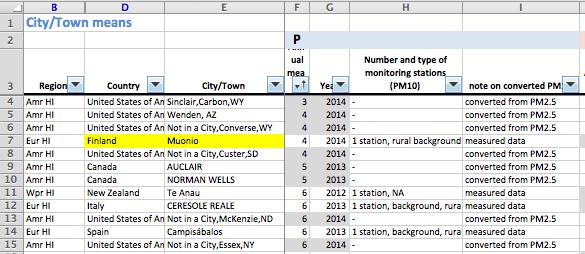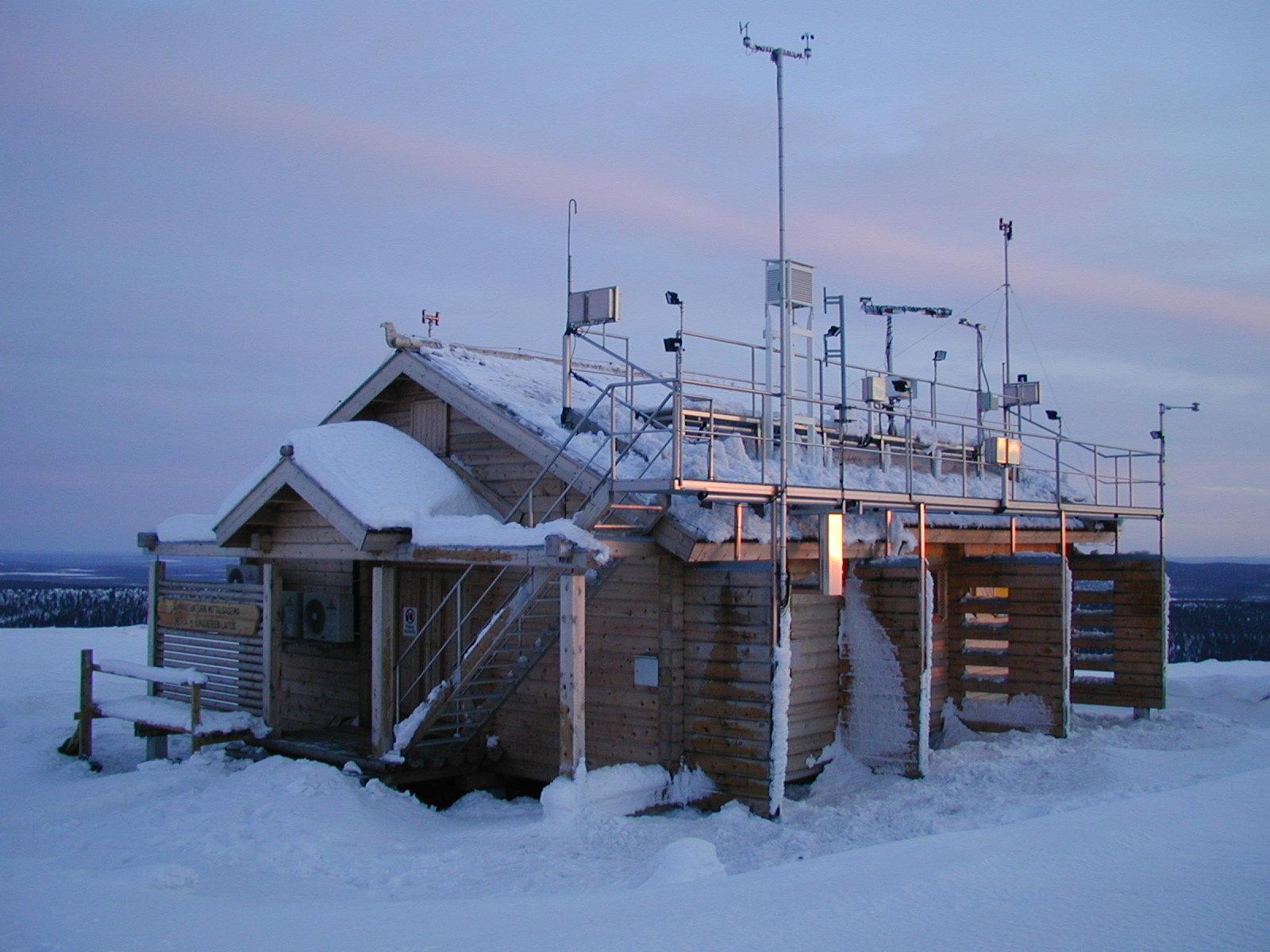Here’s where to find some of the cleanest air in the world
Muonio Town Center
More than 80 percent of the Earth's urban residents are breathing unhealthy air. They're living in cities with lots of cars, trucks and fossil fuel-burning power plants. Think Peshawar in Pakistan, the Saudi capital Riyadh, or Delhi, India.
But a newly updated database from the World Health Organization also pinpoints urban spots where air is the cleanest.

Muonio, Finland (in Finnish it rhymes with "Borneo"), appears near the top of the WHO list, and Finns know why. "It's among the cleanest areas on Earth," says Pia Anttila, senior research scientist at the Finnish Meteorological Institute in Helsinki. Not surprising, perhaps, since Muonio is barely a city at all.
Like other "urban areas" showing the cleanest air in the WHO database, Muonio benefits from a sparse population, few cars and a total lack of industry.
"It's a tiny village," says resident Nina Wigley. "We are about 2,500 people living here in Muonio." She and her British husband William Wigley moved to Muonio 12 years ago to enjoy the natural beauty — and the air.
Nina Wigley runs two cafés that cater to seasonal visitors. Her husband is a civil engineer. The Wigleys live at the edge of town with their three children.
"Even in wintertime, all of our children were sleeping in the baby prams outside in the minus temperatures, which the in-laws all found a bit shocking in the beginning,” says Nina Wigley. “But it's just that they sleep so well when they are nicely covered in layers, and the air is so pure."
You can see a distant church spire through their back window. But that's not the top attraction in Muonio. "We can walk out our front door and in a minute we are able to go into the forest," says William Wigley.
The air quality monitoring station, which supplied the WHO data, is not in the town center, but in the middle of a national park. Researcher Anttila was there recently. She says the term "urban" is misleading, at least at the monitoring station.
"It's a very remote place. Nobody lives in the vicinity, and only the maintenance person goes there now and then." And there's nothing much to see, she adds. "Only lakes and hills, not a living person … within tens of kilometers."
"You do have reindeer and … all sorts of animals there, and lots of lovely hiking treks," points out Nina Wigley. "But there's really nothing around here," adds her husband, "and that's really the attraction."
"And then, of course, there is one thing that is very important for us Finns," researcher Anttila adds. "And that is the silence," she laughs. "Mostly you can be there alone."

Anttila says authorities placed the air monitoring station in Muonio in 1996 to take advantage of its remote location. It's a place with virtually no local air pollution. "There are no local emissions, there are no regional emissions even, and all the things that we detect there are long-range transported."
Because of Muonio's pristine air, the impact of faraway pollution sources can be measured precisely. Anttila says the monitoring station does detect small amounts of pollutants: pesticides, PCBs and sulphur dioxide. "But they all come from far away, from densely populated areas," she says. "Mostly from Central Europe and maybe even from the United States."
Air pollution can travel thousands of miles to reach this remote corner of Northern Europe. But measurements from Muonio show that, since 1996, these pollutants have mostly declined.
However, Anttila notes that one chemical shows a steady upward trend through the two decades of measurement at Muonio. "The carbon dioxide goes up," she observes. "And that means climate change enhances."
Even in Muonio.